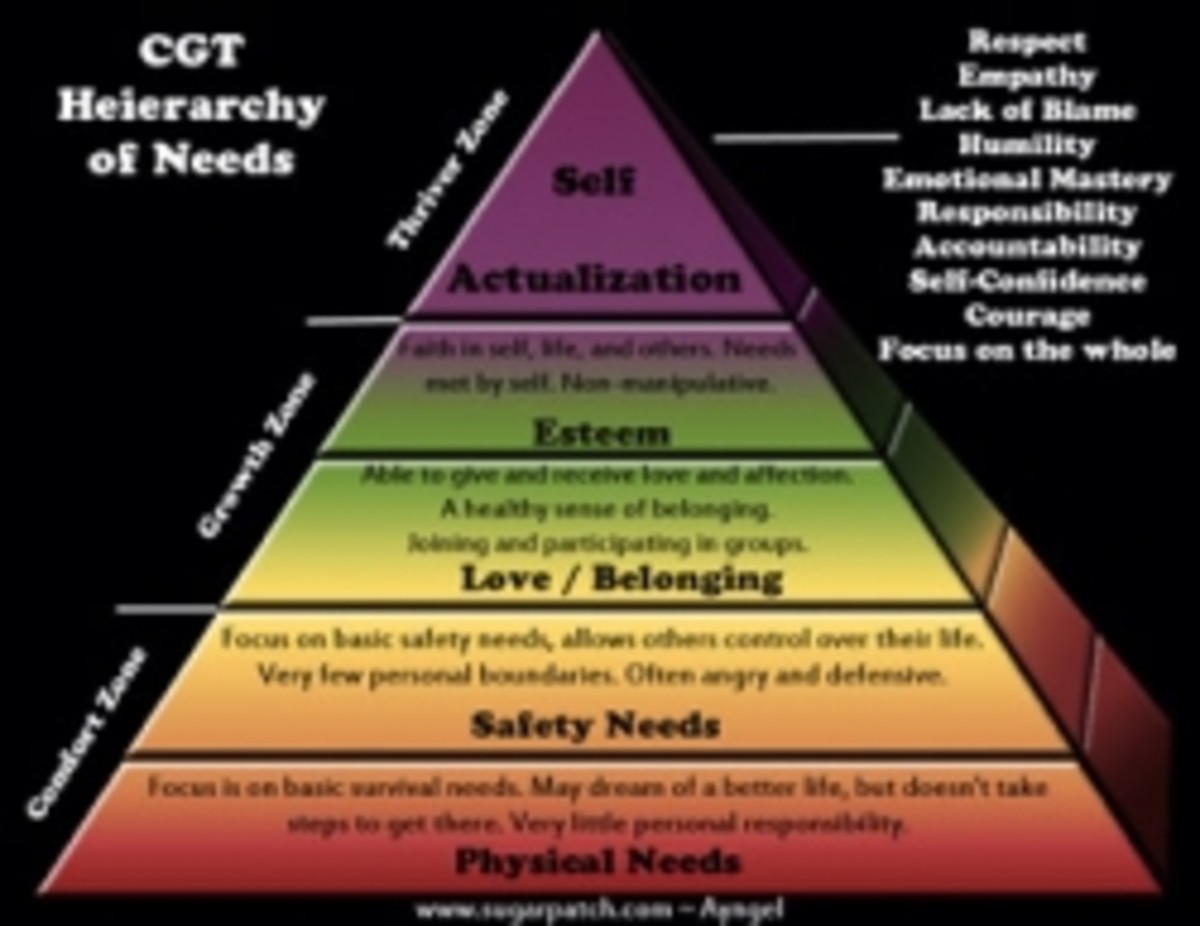Sentence Sermons (Christian Inspiration) #82 --- Preparation
Quotations on Preparation
The successful participant in life's drama must enter the strait gate of preparation and travel the narrow road of application. The prepared person wins, and there is no trick in preparation; it is hard work and must be done by the individual himself. Steady application with complete concentration on the task at hand achieves while divided interests and scattered emphasis produce only mediocrity.
—John L. Hill, The Baptist Training Union Magazine, Nashville, Tenn., March 1947.
Crises reveal character, but offer little opportunity for producing it. Anybody with a good chart and compass can steer a ship when the sea is calm and the weather fair. A captain's ability is revealed in the times of storm. ...
Ability to meet life's crises is the result of patient and long continued preparation.
The man who leaves the doors of life's opportunities standing open, while he goes away to make special preparation, will find upon his return that others who were ready have gone in and the door is shut.
The only way to prepare for life's serious emergencies is to discharge with fidelity every task as it comes to one's hand. Let no one be afraid of doing the small duties of life too well. Let him not be afraid of giving more than value received. Do not be afraid of doing too much. If possible, always do more than is expected of you. Qualification for large opportunities depends upon fidelity in the ordinary affairs of life--upon a sort of projected efficiency.
One needs both immediate and reserve power. The successful man has been found to do his work well and shows thereby his capacity for a larger sphere.
Preparedness is the key word of success. You remember the old fable of the fox and the wild boar: Once upon a time a wild boar of the jungle was whetting his tasks against the trunk of a tree. A fox passing by asked him why he did this, saying that neither hunter nor hound was near. "True," said the boar, "but when danger does arise I shall have something else to do than to sharpen my weapons." ...
Opportunity seized must be seized by the forelock. ... Success in life depends upon seizing the moment of excited interest. ... Opportunities unimproved are forever lost. They may appear to return, but at each subsequent time they are smaller. ... Life's opportunities grow smaller and smaller as they are refused until at last they cease. ...
As we look back over life's past, how many doors of opportunity we see that are shut to us forever! We put off entering, and today we cannot enter. Who cannot recall the many opportunities that bygone years offered to equip himself, opportunities to say a kind word or do a brotherly turn to someone now far away or long dead? How inclined we are to neglect today's opportunities for tomorrow's.
Neglect breeds neglect. Character tends to fixedness. Sometimes we awake too late to discover that we are unprepared for life's emergencies.
—H. Stiles Bradley, The Atlanta Constitution, Atlanta, Ga., Sept. 5, 1904.
Preparation of heart is really worth more than preparation of mind, and neither is to be despised. —W.L. Robertson, The Baptist Chronicle, Alexandria, La., Sept. 12, 1912. You can't have faith in yourself unless you are prepared for the work you have to do.
—William Jennings Bryan, Austin Daily Statesman, Austin, Texas, March 30, 1907.
Be prepared for the duties of life. The duties and positions as they come to us cannot wait for us to prepare ourselves for them, but we must be prepared for them when they come. ... There are always positions for those who are prepared, but the person who is not prepared is always looking for a place, and seldom gets it, and if he finds one, doesn’t keep it long. This is an age of usefulness and efficiency, and those who have both of these qualifications are well prepared and equipped for life’s work. Procrastination, the putting off of duties and the non-preparation for the duties to come, is one of the great evils of the day. ... Be prepared, or the duties of life may come and find your procrastinating.
—J.C. Hogenson, Improvement Era, Salt Lake City, Utah, October 1912.
Few of us think enough about preparation for a happy life. We confuse education with fact finding, not seeing in education the possibility of getting a trained mind--all for the purpose of enjoying life more thoroughly. Preparation for a happy life--that is what every school ought to mean.
—Grove H. Patterson, Milwaukee Sentinel, Milwaukee, Wis., March 14, 1931.
Thoroughness is costly. It can only be had at the price of industry, patient toil, hard work. ...
[God's] blessings are usually in proportion to [our] preparation.
There never can be too much preparation. The richer, the more thorough the preparation, the greater the blessing. Nothing can take the place of thoroughness. But it is costly; it calls for concentration and singleness of aim, ... for perseverance. ...
Thoroughness pays. The only work that gives joy and satisfaction is the work that is thoroughly done. The joy of having done one's work well is the purest and most perfect joy of which a human being is capable. The consciousness of having done thoroughly that which we have undertaken to do adds immensely to one's poise and self-respect. The man who does everything to a finish has a feeling of serenity. He has nothing to fear, and he can look the whole world in the face.
Thoroughness of preparation ... is essential to the highest success.
—Henry Alford Porter, Christian Index, Atlanta, Ga., Nov. 18, 1920.
Short cuts to scholarship or to anything that is worthwhile are always to be deplored. The only thing that is to be commended is preparation. ... We are too much inclined today to want everything to be worked out for us, so that neither trouble nor responsibility will come our way. ... Men seem to be made up of two classes, one of them always asking, "Where do I come in? What is there in it for me?" and the other asking, "Where can I serve?" ... The world is calling for thinking men; for men that have knowledge, that are masterful, that can speak out of the eternal heights, men whose souls are trained to move on the highest ideals.
—John A. Rice, The Daily Picayune, New Orleans, La., Oct. 3, 1910.
A favorite figure of the Apostle Paul in was that of a race. He frequently compares the Christian to a racer and his life to a race. Two essential conditions of success in a racer are months of preparation in which there is abstinence and exercise and then a tremendous effort and expenditure of energy in the final race. In fact, these things, both of them, self-denial and the exercise of every energy up to the very edge of endurance, are conditions of success in any worldly enterprise. And to me they are noble and beautiful. I admire the self-denial, physical effort and indomitable courage of the man who plays baseball, runs a race, or engages in any great physical endeavor. I don't care what a man is doing, or how his aims may be, self-denial and effort are always better than self-indulgence and indolence. I had rather see a young man braced into self-control and stirred into energetic activity on the athletic fields and in the sports of the day, than to have him spend his time in indolence and self-indulgence. ...
There is no place for easy, languid, half-hearted[ness]. If we are to amount to anything in the world ... there must be self-denial, abstinence, and strenuous expenditure. In a race a languid runner has no chance and he knows it. A racer that will not go into training, endure hardship, and then expend vital energy even to the very edge of physical endurance cannot expect to win.
—C.P. Roney, The Baptist Chronicle, Alexandria, La., June 29, 1911.
Gibbon tells us that "Everyone has two educations, one which he receives from others and one more important, which he gives to himself." We are debtors, it is true, to all the past; and in beginning life we enter upon the labor of ages. The past has indeed bequeathed us a rich inheritance; and what we know depends largely upon this wealth. But the highest education and the noblest preparation for life's duties and responsibilities come not from the process of reception or absorption. The popular idea of education seems to be the art of allowing others to do as much for us as we have the capacity of receiving. "He is not capable of receiving an education" is a suggestive expression. True education is self-preparation. It is not a question of pouring in, but of drawing out. Not so much the effect of something on you, as your effect on something. It does not create; but it takes creation for granted. It must find something within you, or it brings nothing out of you. It would lead you to recognize and honor your inner self rather than your outer succor. It converts your possibilities into practical powers. "I accept without qualification," says James Anthony Froude, "the first principle of our forefathers, that every boy born into the world should be put in the way of maintaining himself in honest independence. No education which does not make this its first aim is worth anything at all. There are three ways of living: By working, by begging, or by stealing. Those who do not work, disguise it by whatever petty language we please, are doing one of the other two. The practical necessities must take precedence of the intellectual.
"A man if he would not be mendicant or a rogue, must learn to stand upright upon his own feet, to respect himself, to be independent of charity or accident." The richer a nature the harder and slower its self-preparation and development. ...
Patient preparation is permanent power. If the mulberry lead were impatient it would never become satin. In an age that lacks composure men are apt to mature more quickly and decay too soon. Reserved power should ever be greater than spent power. An act is never great unless there is a greater something behind it. What a man is should be greater than what he does. The master must be greater than the masterpiece.
Self-preparation is more important than self-projection. The rays of the sun, spread like a cloth of gold over the floor of the autumn woodland, do not scorch the fallen and scattered leaves; but let these arrows of light concentrate upon the crystal face of yonder bit of glass, and they become a rod of fire whose magic turns the leaf into ashes. A life often fails to make a lasting impression because of its disposition to spread itself. To shine and play over a wide expanse of territory is much more beautiful and brilliant than to turn over the weight and fire of your life in a given direction and upon a specified spot; by the one you may dazzle and delight during today; by the other you may leave the imprint of a golden influence after the sun is set.
Persevering concentration converts weakness into power, spreads fertility over the barren landscape, bids the choicest fruits and flowers spring up and flourish in the desert abode of thistles and thorns, and opens to poverty the world's wealth. Men whose lives were not distracted, but whose life work was contracted, have impressed the age in which they lived, and have brought things to pass. To attempt everything and to accomplish nothing is fatal folly, encouraged too often by our educational system and by our professional and commercial life.
The objects of knowledge have multiplied beyond the powers of the strongest mind to keep pace with them all. We must choose among them, and the only reasonable guide to choice in such matters is utility. ... If our lives are to mean the most we must take one line and rigidly and sternly confine our energies to it. Never lift the weight of your heart and hand from a thing until you have become its master. The higher and more unselfish the end toward which we would direct our lives, the greater is the demand for intense and ceaseless concentration of our noblest purposes.
The pursuit of your purpose may lead you over rugged mountains, across rolling seas, through fierce flames; but others have conquered these and so may you. Clearly does history echo the truth that the life worth living is the life worth suffering for; and the end proposed by a human being may put honor upon self-dedication and self-sacrifice. ...
Many today, who slumber in nameless graves or wander through the tortures of wasted lives, are those upon whom nature has poured her richest gifts, but whose powers are dissipated rather than directed. What we fondly call genius is often but the child of application. Focus your best powers upon the details of your life work. ...
The eye must be fixed upon the ideal before the hand can touch it. ... Contemplate! Concentrate! Consecrate!
—Henry Allen Tupper, Christian Index, Atlanta, Ga., July 6, 1922.
One of the most beautiful, wonderful, useful, effective words in our language is the word preparation. The habit of being prepared has brought more success, been responsible for more happiness, and done more good than any other single thing. Almost all of life is made up of preparation. How well we prepare determines almost every success. Someone has said, "The future belongs to him who prepares for it." That not only belongs to the future; it also belongs to the present.
Probably the word that represents the most tragedy in our lives is the word unprepared. The word unprepared is tragic because it implies that the failure was preventable.
Lack of preparation is significant for many reasons. It is usually the cause of failure, but it is even more important for what it indicates in people. It shows apathy and sloth in visible forms and pictures the unwillingness of the people concerned to assume their proper responsibility. Solomon said, "Where there is no vision, the people perish." (Proverbs 29:18.) How true that is. And if we cannot see the little things lying immediately before our eyes, how can we hope to see the great things lying off in the distant future?
The dictionary says preparation is "to set in order, to make things ready, to put together according to a plan or formula." That applies to our thoughts and our minds and our lives. We need to practice it every day and in everything we do.
One of the greatest of all paradoxes is that almost everyone wants to improve his circumstances, but almost no one wants to improve himself. Only by effective preparation can we make full use of our God-given talents. If we lack for anything, it is not for ability, but for thoroughness in our preparation.
When we are not preparing to succeed, we are automatically preparing to fail. When we stop getting better, we start slipping in the other direction.
—The Challenge, Stockholm, Sweden, May 8, 1962.
He who has no time to get ready is never ready at any time.
—Henry F. Cope, Chicago Tribune, Chicago, Ill., Feb. 9, 1908.
Resources for tomorrow depends on reserves made today.
—Henry F. Cope, Chicago Tribune, Chicago, Ill., May 30, 1909.
No successful effort can be launched ... without careful planning and preparation. A vision of the task to be accomplished, plus the willingness of body, mind, and spirit to carry through, will complete the task begun. Too often ... we have a vision of worthwhile endeavors, only to find ourselves quailing--mentally, physically, or spiritually--before the arduous demands of the task. So, even the first step of any effort takes W-O-R-K. We must subjugate self and selfishness, consecrating our all to the task.
It takes W-O-R-K to think through all the details in launching any effort. ... Too often we fail at this point. An effort is launched without attention being given to detailed planning, and the movement dies the natural death of unpreparedness. ... Half the battle is won if the preparation has been thorough and if it is presented ... in a way that is definite, clear, and workable.
As already stated, "half the battle won" comes from well-made, clearly defined plans, but the rest of the battle will be lost if redoubled efforts are not made to carry all plans through to a successful close. ... It takes W-O-R-K to follow through.
—Irene Jones, The Baptist Training Union Magazine, Nashville, Tenn., February 1942.
Have a purpose in your heart. Match that purpose with a plan. Essential to any plan for building is a survey of resources. Start with a survey of your possibilities. ... Match your plan with preparation. ... Match your preparation with prayer. When one prays earnestly, one must either help God to answer that prayer or charge his praying. ... Match your prayer with perseverance. Keep everlastingly at it! Discouragement is dangerous. ... Build on a long-range basis, move forward a step at a time, ... plan persistently, ... and pray without ceasing.
—James P. Morgan, The Baptist Training Union Magazine, Nashville, Tenn., August 1961.
"Be prepared for the worst," is a pretty sensible way of lining up your resources, and preparation starts with mind discipline.
Expect to have a long, exacting battle in quest of success and then your self-denials and the hardships which come in the course of events will not prove half so bad as they seemed when you stood at the "foot of the hill" and looked at the peaks.
Mind, preparation, courage and determination to face difficulties, overcome mountains.
Get them in perspective.
—J.J. Mundy, Kansas City Post, Kansas City, Mo., March 20, 1919.
Resourcefulness is an original gift for some of us, a capacity which we inherit, but like other qualities of the mind, it can be developed in those who do not naturally possess it. Webster, in defining resourcefulness, explained it as “the ability to meet unusual demands or sudden needs.” It means that one is prepared for almost any emergency. ... This remarkable quality includes a combination of virtues such as intelligence, wisdom, judiciousness, tactfulness, knowledge, enthusiasm, confidence, faithfulness, devotion and loyalty.
—Lee A. Palmer, Improvement Era, Salt Lake City, Utah, January 1955.
Here are a few basic steps to preparation:
1. Know your goal.
2. Know where you stand in relationship to your goal.
3. Learn from others.
4. Profit by your own mistakes.
5. Never quit trying.
—Eugene R. Humphries, Fishers of Men, Hamburg, West Germany, February 1965.
The elements are loaded with forces to make electricity and are instantly available for conversion but, to convert these forces, preparation must be made. A magnetic field must be set up, and a dynamo installed to cut the lines of force. This preparation instantly converts physical power into electrical energy and this generates electricity. This same principle is necessary to generate enthusiasm but, to generate it, preparation must be made. Preparation is the act or process of making it ready for use. Discipline is the first requisite to preparation.
—Anderson M. Baten, The Philosophy of Success, New York, N.Y., 1936.
The key to preparedness is organization. In other words, a schedule, and that you cling to it and never leave it except for a better one.
—Lonnie Morgan, Fishers of Men, Hamburg, West Germany, November 1963.
If you are prepared for the worst it is surprising how often the best will happen.
—Carson City News, Carson City, Nev., June 18, 1922.
The first law of preparation is that everything worthwhile is brought about by labor. Success must be deserved and paid for. There must be industry, study and application before we get full possession of success.
—Westate News, Denver, Colo., November 1962.
The best beginning one can make in preparing for life's battles, opportunities and responsibilities is a firm resolve to cultivate exercise of the virtues. To act upon the urge of the virtues is wisdom in action.
—Dallas Morning News, Dallas, Texas, June 1, 1930.
A majority of us go along on a dead level all of our lives, then at the end drop into the grave without having gone anywhere in particular.
There is always some obstacle ahead, something that we cannot get over, so we keep going along on the flat and never rise.
With some of us it is lack of power, with others lack of imagination that sees beyond difficulties and overcomes them.
With nine out of ten it is lack of preparation. ...
The whole world is a ... field where somebody is trying to get a start, trying to get up off the dead level and go ahead.
Everywhere there are obstacles that must be overcome. ... Foolish habits must be conquered, careless spending must be discontinued, and dread of hard, monotonous work must be overcome. Nothing worthwhile is easy. ...
The first essential of success is not to be discouraged by failure, or by ten failures, or by a hundred failures. No matter what the cost, get going, rise, if ever so little. The start is the hardest.
—New York American, New York, N.Y., June 5, 1927.








